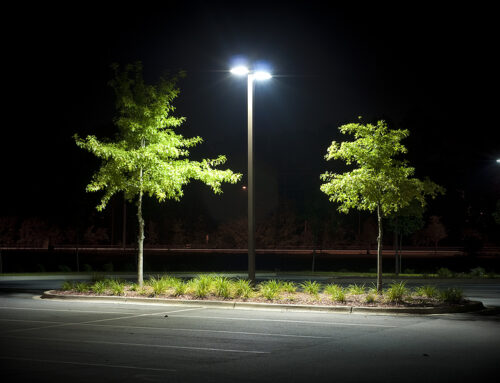Premises liability claims arise because property owners, whether residential or commercial, have a legal duty of care toward visitors to their property. This duty requires them to provide a reasonably safe environment for anyone they invite or allow onto the premises. Most often, this means repairing or removing any physical hazards that could cause an accident in which someone might be injured, such as ice and snow or broken flooring tiles that might make someone slip or trip and fall. But sometimes the dangers present on a property can take a more sinister form. You might go out for a drink with friends and be assaulted by another patron at the bar or stop to use an outdoor ATM and find yourself on the wrong end of a mugging. In circumstances like these, the property owner may bear some liability for your resulting injuries if it can be proven that they were negligent in providing adequate security to prevent such criminal actions.
 Obviously, crime can happen anywhere, and the most shocking instances of criminal activity have such an impact precisely because they are unexpected. However, there are factors that a reasonable person would recognize that make certain types of crimes more likely in certain areas. An outdoor ATM on a poorly lit side street or a dark parking lot outside a 24-hour store are places where the opportunity for criminals to prey on patrons is higher than usual. A rowdy bar or crowded nightclub are settings where alcohol is flowing and inhibitions are lowered, and the potential for a violent altercation or predatory behavior is increased. When the heightened risk of harm from criminal activity is reasonably foreseeable – whether because the nature of the property implies that risk, or because there is a history of similar criminal activity in the local area – it is the responsibility of the property owner to take appropriate steps to protect visitors to their property.
Obviously, crime can happen anywhere, and the most shocking instances of criminal activity have such an impact precisely because they are unexpected. However, there are factors that a reasonable person would recognize that make certain types of crimes more likely in certain areas. An outdoor ATM on a poorly lit side street or a dark parking lot outside a 24-hour store are places where the opportunity for criminals to prey on patrons is higher than usual. A rowdy bar or crowded nightclub are settings where alcohol is flowing and inhibitions are lowered, and the potential for a violent altercation or predatory behavior is increased. When the heightened risk of harm from criminal activity is reasonably foreseeable – whether because the nature of the property implies that risk, or because there is a history of similar criminal activity in the local area – it is the responsibility of the property owner to take appropriate steps to protect visitors to their property.
While a wide variety of security options exist, security measures can be divided into two general classes: physical objects and devices intended to make the premises safer or monitor and record activity on the property, and personnel hired to provide safety and supervision. For these two categories, negligence manifests differently. In the context of security staff, negligence can mean:
- a failure to hire sufficient staff for the size and risk level of the property
- inattention or inaction on the part of security staff
- inappropriate behavior by security staff (such as assaulting patrons)
In terms of security devices and physical features intended to make a property safer, negligence often means the absence of or failure to maintain these devices, including:
- inadequate lighting to discourage criminal acts
- failure to install and maintain functional locks
- absence of security cameras, or failure to monitor or record security footage
- failure to erect and maintain secure fences or barriers
- failure to install and maintain alarms, motion detectors, or other appropriate security devices
Depending on the type of business or property, there may be other factors that can point to negligence in security measures. If an establishment has security logs or routine procedures that are meant to be followed on a regular schedule, a failure to adhere to that schedule or an irregularity in those logs can be used as evidence of negligence.
In general, making a legal case for negligence requires three things: that the negligent party had a duty of care toward the injured party, that the negligent party failed in that duty, and that this failure caused harm to the injured party. While a property owner clearly doesn’t have direct control over the actions of other patrons or members of the public who choose to engage in criminally predatory behavior, the property owner does have a responsibility to maintain their property in such a way as not to facilitate criminal acts, to provide appropriate safety measures that discourage criminal activity and maintain a reasonably safe environment for visitors, and to otherwise take reasonable steps to protect patrons from foreseeable criminal threats.
The stakes for a victim in a negligent security case are high. Obviously, any premises liability case involves potentially severe physical injury, but becoming the victim of deliberate criminal violence often inflicts serious emotional trauma on top of the bodily harm and any monetary loss if the victim was robbed. Property owners generally try to argue that they aren’t responsible for the actions of criminals and shouldn’t have to pay for damages in these cases, but when you visit a business or commercial property, you are trusting the owner or maintainer of that property to provide a reasonably safe establishment to patronize. When that trust is betrayed through carelessness or an unwillingness to invest in appropriate security, you have every right to seek compensation for the pain and trauma that result.
Contact MyNJInjuryLawyer Howard P. Lesnik
If you or a loved one suffered an injury in an accident in NJ, you should contact an attorney familiar with handling these claims. An experienced NJ Injury Lawyer will know how to obtain medical records, videos, photographs, experts, locate witnesses and contact the insurance company so you can make a claim for your injuries.
My NJ Injury Lawyer Howard P. Lesnik, Esq. offers complimentary strategy sessions to address any issue or questions you may have for your injury claim in NJ.
Please contact NJ Injury Lawyer Howard Lesnik, Esq., immediately if you were involved in an accident. I personally handle NJ personal injury cases on a regular basis. Please contact me now by email, by phoning 908.264.7701, or by completing the form to the right to schedule your complimentary 30-minute strategy session. Call me direct and I will answer 5 questions that you have about your potential claim.



